I can’t quantify the cost of living in Thailand accurately. As anywhere, Thai living depends on where you live, your needs, and resources. If you stay for a long time, what is the cost of living in Thailand? Or, if you are a traveller or taking a long sabbatical, how much does it cost to live in Thailand?

Choosing a home for living in Thailand
Are you a traveller, taking a sabbatical, or are you planning to retire in Thailand? You can read a plethora of articles on the subject. Some of which may get you diving into the storeroom for your suitcase. Others may make you bolt the front door and hide in the broom cupboard. They can be useful as a rough guide but sometimes they are too generic. So I have approached the subject in a slightly different way.
To rent an old wooden village house like this one in a Chiang Mai village will cost no more than 2000 Baht a month. If you are staying a year or more you are likely to have to pay between 1000 and 1500.
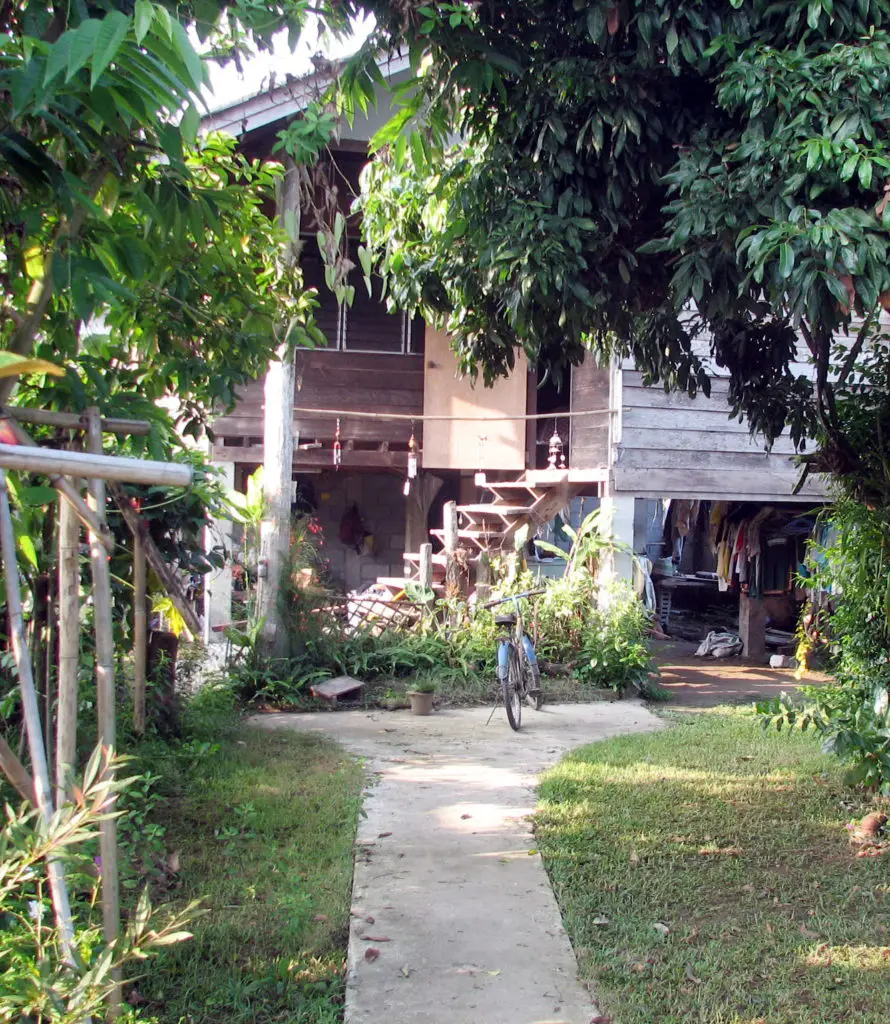
But for a modern detached property something like this you’ll pay nearer 10,000 Baht.
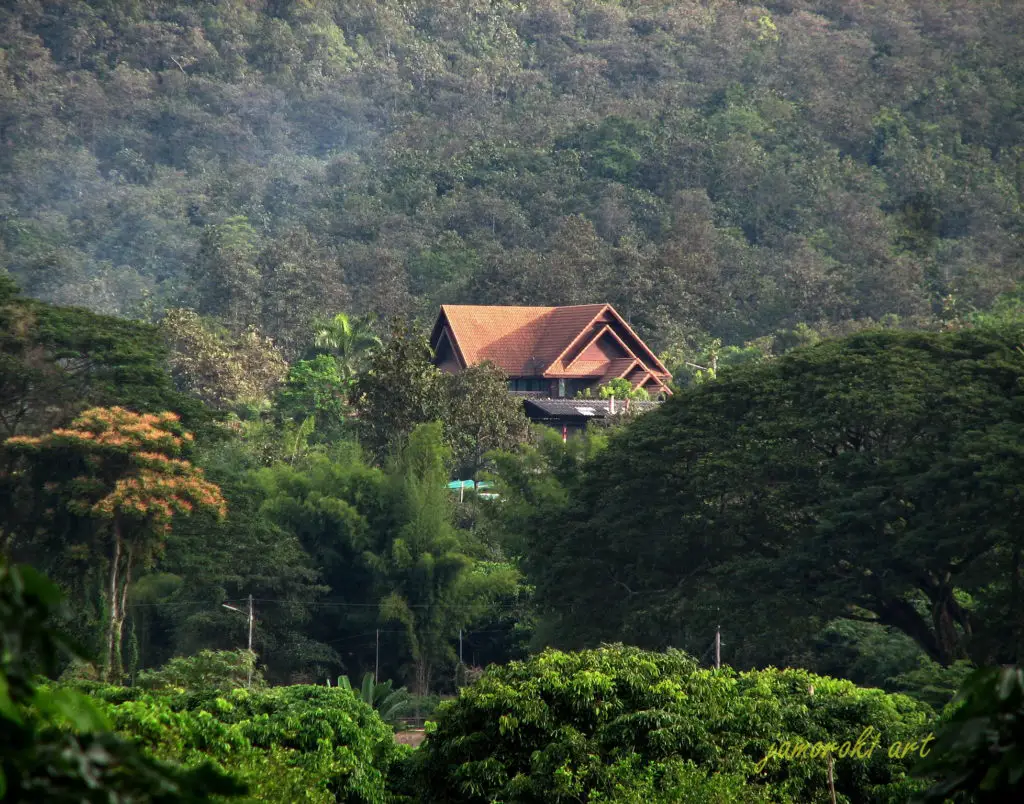
These are examples of houses I know. It will vary by location, age and quality of house. Condos and apartments in a city like Chiang Mai go from 3000 to anything out of reach. There is always a plethora of properties for long-term rent. And most landlords are relaxed about sub-letting. So, if you want a nice condo for yourself for six-months a year, you can rent permanently and sub-let to friends or family for the other six months.
Thai living in a village
Let’s first consider the locals. 45% of the working population don’t have regular work but make enough money so they and their families have enough to eat. When working, these people will typically earn between 300 and 500 baht a day from subsistence farming and working as building labourers.
How much does it cost to live in Thailand for Thais?
The cost of living in Thailand will be different for most Thais than it will be for most ex-pats and travellers, because of where they are prepared to live.
Since 2013 employers must pay a minimum of 300 baht a day. If they don’t, they face six months in jail and/or a 100,000 baht fine for non-compliance. Assuming that at least 50% of the working population manage an average of 20 days’ work a month then each person will take home 6000 baht per month.
Say one other person in a household of 4 earns a further 4000 baht then that household has 10,000 baht to live on every month. If you live in a farming village, you will soon realise that this is the average cost of living in Thailand for a small family. But they will have no luxuries, their homes will be basic, transport will be an old car, motorbike and bicycle and TV will be ‘free to air’.
It is not surprising then, that the younger generation have little or no interest in farming or factory work. When they finish their education they are off to the cities in search of a work and a better life.
Cost of living in Thailand – Regional differences
Of the four major conurbations, Bangkok, Pattaya and Phuket are the most expensive places to live, while Chiang Mai is the cheapest and most attractive. Finding the best ways to stretch your cash as far as possible requires time, but can be fun and believe it or not, particularly where food is concerned, cheap is often best.
For example; fresh fruit and vegetables from a local village market in Chiang Mai will be FRESH, because it is grown locally, and can cost up to 75% LESS than in a market in Phuket. Why? Because it hasn’t had to travel 700 to 1200kms. In our village in Chiang Mai Province, everyone grows bananas. But when they aren’t ripe we buy in our village market or someone gives them to us. Bananas are only sold in bunches and a bunch of 15 will cost around 10 baht. In Phuket, you will pay between 20 and 50 baht. Papaya, which can be eaten in many different ways, grows like a weed, so for all of us in Chiang Mai it is free. But not in Bangkok, Pattaya or Phuket.
Let’s look at the main living requirements and comparative costs.
Housing
My advice for long stay, is to rent. Don’t buy or build. Non-Thais can’t own land so buying or building is fraught with danger. I would urge anyone to research thoroughly and beware. If you do the sums you will find the renting option in Thailand is great. Because, not only is there a variety of properties available for short and long term rent, but Thai landlords are flexible. Leases tend to be casual affairs as long as you pay the rent. Once you have tied up a deal the chances are you will be allowed to do what you want to the property (within reason) and it is yours forever, if you so wish.
But, if you are thinking of building a house in Thailand, maybe because your thai spouse has some land in a village, then you should read my post on house building in Thaialnd.
Thai families who build houses to let, rarely sell the property. It is an investment to be passed on to the next generation. If you take on a property for one year to start with the landlord should give you a pretty good deal, especially if you pay the year or six months in advance.
If you are a responsible tenant they are unlikely to push escalation for a few years. Prices range from as little as 1000 baht for a basic house in a village to over 100,000 baht per month for a very swish place in Phuket or Bangkok. A nice modern 2 bedroom house with a garden in Phuket will cost 12,000 baht a month. In Chiang Mai, the same accommodation with a garden will cost 6000 baht.
Utilities
Electric and water shouldn’t set you back more than 1500 baht a month, unless you hammer the aircon and/or have a pool and a big house. In cooler months September to February, depending where you are, expect the bills to be around 650 baht. Chiang Mai and the North are much cooler between December and March.
Satellite TV and ADSL Internet
Approximately 1000 baht each should see you ok. I don’t have TV. Do you need it these days?
Food/Water & Household/Toiletries
If you enjoy cooking, the markets are stuffed with everything you need for wholesome eating. Fruit, vegetables, chicken, pork, and fish are Thai staples and plentiful. 150 baht will feed 3 people for a day easily plus rice which we all buy in bulk (20kg bags) at 30 baht a kilo. Drinking water purchased in bulk costs approximately 35 baht a month per person. If I add in household cleaning stuff and toiletries I doubt we spend more than 7000 baht a month in total; less than 2500 baht per person. Add 50% to this for Bangkok, Pattaya and Phuket.
Eating out
Eating out is a good option and not expensive if you use the restaurants frequented by Thais. Basic meals in Chiang Mai, such as Kwaitio (noodle soup), Khao tom pla (rice soup with fish), Kapow moo sab (spicy minced pork with herbs and rice) and Pad Thai cost between 25 and 45 baht. Again add 50% for Pattaya, Phuket and Bangkok. Drinking water is usually supplied free with ice. If money is no object then there are plenty of good and expensive restaurants.
Expensive does not always mean good, and seldom is it value for money. It is very easy to find yourself paying through the nose for the ambience. But don’t worry, just enjoy the view. By the way, unless you are paranoid, don’t spend too much time wondering where the ‘health inspector’ is. He hasn’t been invented yet in Asia. I have had the odd bout of food poisoning, even at home. The girlfriend and I weren’t getting along too well at the time. But it’s normal in the tropics.
Transport
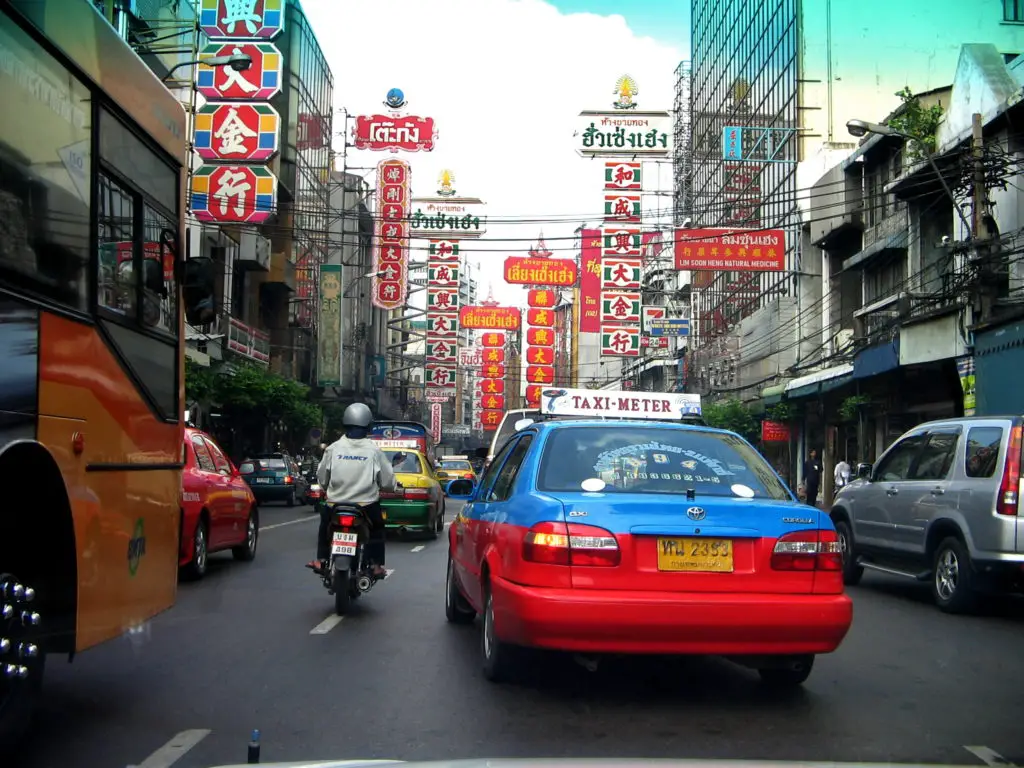
Obverse to housing – don’t rent; buy a car or motor-bike if you are planning on a long stay. Depending on where you live you will need transport. If you settle in Pattaya, Phuket or Koh Samui a motorbike is sufficient for everyday use. In fact, it’s much better than a car as there is too much traffic. You can buy a good used bike for around 35,000 baht which will last many years. Unless you ride it continually, day and night, 500 baht a month will cover your gasoline. These are all factors that affect the cost of living in Thailand. Live like a Thai and it’s cheap. Live like a …and it’s not.
Bike maintenance is cheap and there are plenty of small workshops who will look after you. Make sure you get proof of ownership (green book), transfer it into your name and get licenced at immigration and the transport office before you part with any money.
Same goes for cars. Rentals are an easy option for short stays but try and avoid doing it by the day. A month’s rent for a newish Honda Click bike (pre-covid19) was around 3000 baht in Phuket or Samui for example. Post- covid19 don’t pay more than 1800 Baht a month.
Something you need to know is that it’s virtually impossible to get motorbike insurance other than the compulsory insurance issued with your vehicle licence, which covers very little. So, I’m sorry to say, the risk is yours if you have an accident. Despite this most motorcyclists are best described as irresponsible. You have been warned.


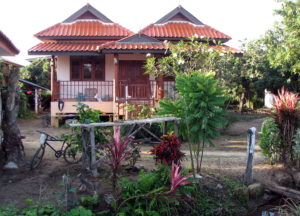
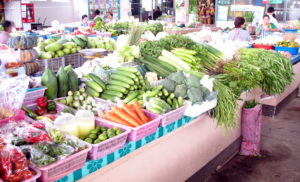
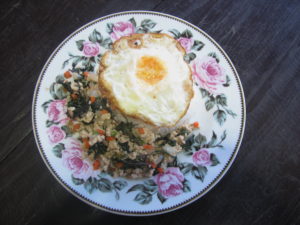
Great photo 🙂
Thanks Jackie. So many people ask ‘What does it cost to live in Thailand’. It’s a ‘How long is a piece of string’ question so I felt compelled to write it.
very good and on the money
Thanks for your personal marvelous posting! I certainly enjoyed reading
it, you will be a great author.I will be sure to bookmark your
blog and will eventually come back in the future.
I want to encourage that you continue your great
posts, have a nice weekend!
You are welcome. I a pleased you enjoyed the post. Please visit again. James
I’m excited to discover this web site. I need to to thank you for ones time for this particularly wonderful read!! I definitely savored every part of it and i also have you bookmarked to see new information in your site.
Safe as houses Steve. But as I say in my post, it depends on how you want to live. Here’s a simple breakdown for say Chiang Mai in the city. Studio apartment reasonable quality 5000. Eat Thai food at local places, markets or street 5000. Buy a motorbike (50,000 new) Transport costs 750. TV and internet 1500. Luxuries (beer fags etc) 8750.
Is it safe to say that an individual could live there for less than 20000 baht a month?
Thanks for visiting. Don’t lose the bookmark. See you later. James
Very good information. Lufky me I ran acrosss your blog by accident (stumbleupon).
I have book-marked it for later!
Thank you for the compliment Kattie. It’s all my own work using WP 2014 theme as the base.
I’m really enjoying the design and layout of your
blog. It’s a very easy on the eyes which makes it much more enjoyable for me to come here
and visit more often. Did you hire out a developer to create your theme?
Outstanding work!
There are many expats in Thailand. Some survive the culture shock and some don’t. After 5 years I am still surviving and more and more I’m understanding the Eastern ways. In some ways I think my blog is becoming more like a book/collection of writings/information as readers like you pick up on older posts. Thank you for taking the time Anna. james
Very interesting post! It makes me want to try living in Thailand for a little while.
Thanks for your comment Kirk. Could you explain what you mean please so as to help us all.
cheapest motorbike insurance is not honestly depicted in The real cost of living in Thailand | JAMOROKI.